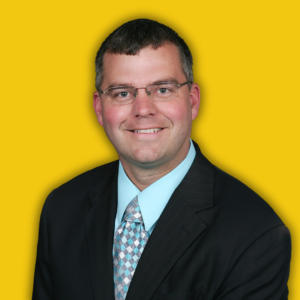 N. Travis Clark, MS
N. Travis Clark, MSVice President of Operations, Valley HealthLuray & Woodstock, Virginia
Travis Clark not only oversees the successful operation of two Critical Access Hospitals in rural Virginia but also makes a lasting impact far beyond the hospital walls. Deeply committed to improving the health and well-being of the place he calls home, Travis actively partners with local community-based organizations, schools and town governments to advance rural health. He is truly a deserving Community Star.
As Vice President of Operations at Valley Health and Administrator of Page Memorial Hospital (PMH) in Luray and Shenandoah Memorial Hospital (SMH) in Woodstock, I manage the operations of these two hospitals located in the heart of Virginia’s beautiful Shenandoah Valley. These hospitals serve two counties covering over 800 square miles, home to approximately 70,000 people. Valley Health also operates a dozen Rural Health Clinics and urgent care centers, providing local access to crucial services such as primary care, cardiology, orthopedics and general surgery. As the region’s largest employer, I prioritize fostering positive relationships with businesses and organizations to create healthier, more vibrant places to live.
During the COVID-19 pandemic, PMH partnered with the Page Alliance for Community Action (PACA) to establish three community gardens on Valley Health campuses throughout the county. These gardens not only provided a safe place for people to connect with others while socially distancing, which was critical for physical and mental health during that time, but they also yielded over 2,000 pounds of vegetables every year. The produce is donated to the Page County Free Clinic and distributed to other individuals living in food deserts. This year, SMH partnered with Community Resources for Education and Wellness (CREW) to establish our fourth garden in Mt. Jackson, Virginia.
To me, the “Power of Rural” is the power of home. I grew up in Page County, went to school here, my family farm is here, and I now live here with my wife and son. It may sound cliché, but we often say we are neighbors caring for neighbors – and our entire team truly embraces that sentiment. It’s not uncommon for me to walk through the hospital and see my former English teacher. That sense of closeness and familiarity drives us to give our very best every day. We want our rural communities to be proud of their local hospitals and feel confident that when they come through our doors, they’ll receive top-quality care from a team of experts who also call this area home.
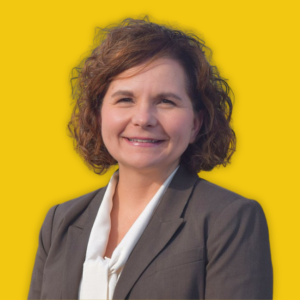 Theresa Sullivan, MBA, FACHE, ACSTH
Theresa Sullivan, MBA, FACHE, ACSTHChief Executive Officer
Samaritan Healthcare
Moses Lake, Washington
Theresa Sullivan’s work is grounded in her belief that rural communities deserve equal access to health care and an exceptional patient experience. Since 2014, she has led Samaritan Healthcare with inspiration, dedication, and service to rural Washington. Under her leadership, Samaritan has expanded medical services and provided state-of-the-art care. Theresa spearheaded the opening and expansion of a second Rural Health Clinic to offer primary and urgent care for the underserved in North Moses Lake. Additionally, they enhanced access in their CareToday walk-in clinics with an app for checking wait times and registering for care. Sullivan’s leadership, vision, and passion for rural health care have had a lasting impact on the region beyond the walls of Samaritan Healthcare.
As CEO, I strive to create passion for the organization’s mission and vision, create a culture of positive employee engagement, and collaborate on innovative solutions. I work with our Board, community members and leaders from other hospitals to form strategic partnerships that improve care and expand medical services in our rural community. Moses Lake is a growing rural area where patients often travel long distances for care. In 2018, we launched a Master Facilities Plan to evaluate current buildings and growth opportunities. With no room to expand, we determined the existing facility wouldn’t meet future demands. In 2023, residents voted in favor of a bond for a new hospital. The new hospital, set to open in 2026, will provide high-quality specialty care, expanded surgical and emergency services, an advanced nursery for at-risk mothers and babies, and improved access to ancillary services.
To meet the growing community demand for care, we implemented a full-scale recruitment and growth campaign focused on bringing more primary specialty services to our patients. During this time, Samaritan Healthcare has recruited more than 35 new physicians and providers across 13 new service lines, including six surgeons, plus additional family medicine providers.
In 2018, we partnered with all six publicly owned healthcare organizations in the region to form the Grand Columbia Health Alliance. This collaboration enables each organization to share resources and technology, providing patients access to state-of-the-art health care without traveling to large cities.
I’ve spent most of my life in rural communities. It seems rural health care found me. I took a hospital position in my community without thinking it would become a lifelong love, but it did. I saw the unique and wonderful connection between a rural community and its hospital – neighbors caring for neighbors. When you strengthen a rural hospital, you truly strengthen the whole community. That connection to purpose and community is my inspiration.
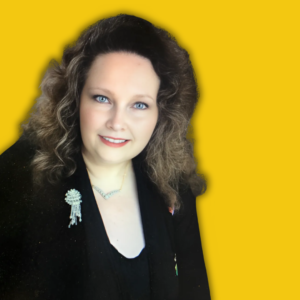 Deborah Curry, JD
Deborah Curry, JDProgram Director for Rural Outreach and Development
Center for Rural Health, Marshall University Joan C. Edwards School of Medicine
Huntington, West Virginia
Deborah Curry is a rural health leader known for her unwavering commitment to advancing rural health care in West Virginia. Over her two-decade tenure at Marshall, she has ignited a passion for health care in thousands of young minds throughout the state. Debbie’s exceptional achievements include leading the Marshall Medical School Pipeline Project, fostering diversity among healthcare providers and medical students, and playing a pivotal role within the Rural Health Association and its Board.
As Outreach Director for the Center for Rural Health at the Marshall University Joan C. Edwards School of Medicine, I work with pathway programs that encourage students to pursue healthcare careers and support retention programs for residents and rural providers. I collaborate with multiple FQHCs, the Higher Education Policy Commission, and other rural health organizations, promoting access to quality care. I’ve served as the WV Rural Health Association President and Director, using my legal background to further our vision. Our team members serve on multiple Boards and committees around rural health issues, fostering collaboration between academic medical centers and rural providers, non-profit agencies, and State Offices of Rural Health.
One of the most rewarding accomplishments was helping to create an FQHC-Look-Alike clinic in an underserved area and watching it grow into a hub for education and research. The National Rural Health Association recognized the clinic as the Rural Health Care Organization of the Year – a proud moment for our team.
We collaborated with a Rural Health Center at another medical school in our state. Medical students from both schools participated in community health awareness events and vaccine initiatives alongside a rural community health center. This joint effort greatly benefited the rural community and highlighted the value of collaboration over competition.
Having lived in a rural community for most of my life, I’ve experienced firsthand the difficulty of accessing quality care. It’s important that my friends and neighbors have access to care that allows them to lead fulfilling lives and maintain employment. Using my skills as a lawyer and my experience in health care and higher education to further rural health has been a wonderful and rewarding career choice.
The “Power of Rural” means harnessing the strength of family, community, and rural allies to come together in innovative ways to improve all of our lives. It means the power of compassion, strength, and perseverance I see daily in my work. Personally, it’s lifting one another up in love and faith to move mountains and accomplish what seems impossible.
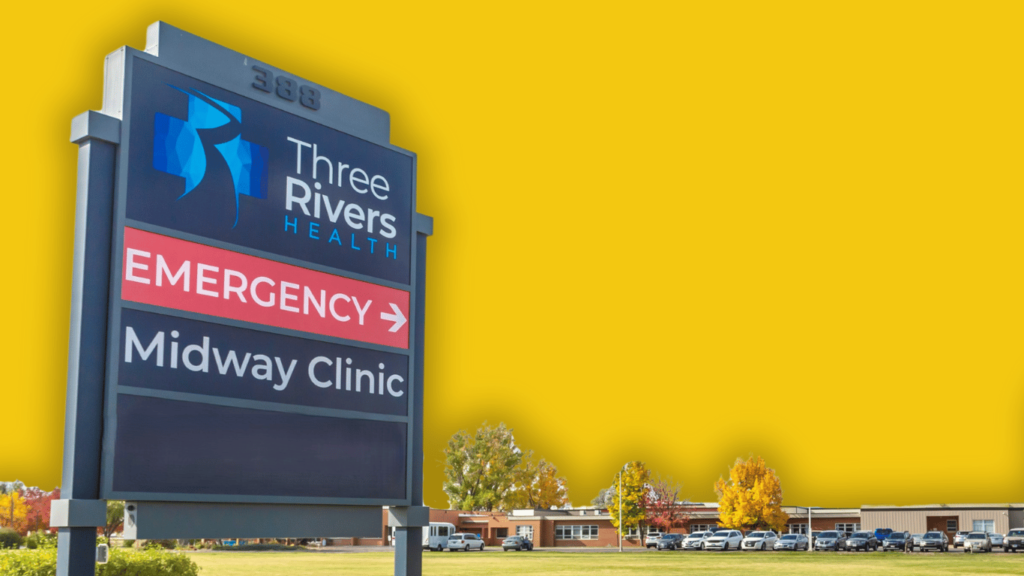 Three Rivers Health
Three Rivers Health Three Rivers Health has experienced substantial changes in recent years, emerging as a stronger healthcare organization through the process. Recently, they hosted the ‘Dare to Lead’ workshop for the Northwest Region of Wyoming, where CEO Joel Jackson opened with a powerful message: ‘We hope you leave today feeling heard and cared for.’ This statement perfectly encapsulates the culture at Three Rivers Health—they take the time to listen and truly care about their community. This was evident during their Community Health Needs Assessment, where they engaged with residents and are now implementing action plans based on their feedback. Over the past year, the organization has also achieved a remarkable financial turnaround by focusing on details, listening, and learning. This progress enabled the first staff pay increase in some time, a testament to their teamwork. With renewed confidence from administrators, the Board, and staff, Three Rivers Health has turned a significant corner and is poised for a bright future.
The last year has been remarkable. In June 2023, we had just six days of cash on hand, and the facility was in danger of closing. Our team and the community worked together to reimagine our needs and diligently focus on patient care. The result was a 24% increase in patient care, a turnover rate of just 1.6%, and employee engagement scores that lead our rural health network counterparts. In short, this is one Critical Access Hospital and Rural Health Clinic that is no longer in danger of closing.
Veterans make up about 10% of our staff, and we contract with the VA to provide services. Our case manager, a veteran herself, has doubled the number of veterans seeking care at our facility. Many travel 70-100 miles for our services, drawn by the high quality of care we offer.
We hired and trained two additional staff over the past year to grow our in-home nursing program to 25% of all outpatient visits required. This has improved diabetic management, reduced hospital readmissions, and significantly boosted patient and employee satisfaction.
When another hospital closed an established primary care practice in Basin, we collaborated with their leadership to employ and re-establish that provider as part of our team. This allowed continuity of care for over 1,600 patients and kept a trusted primary care provider in our community.
My service in the military and my community growing up inspired me. There’s no higher purpose than ensuring rural locations have access to care.
The Wyoming Office of Rural Health was instrumental in our turnaround. They provided technical assistance, allowing us to perform a long-overdue Community Health Needs Assessment. Partnering with them has rapidly improved recruitment, access to care, and training in our underserved rural area.
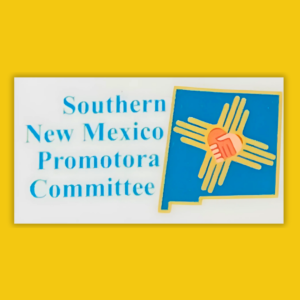 Southern New Mexico Promotora Committee
Southern New Mexico Promotora CommitteeThe Southern New Mexico Promotoras Committee (SNMPC) consists of 50 certified Community Health Workers/Promotoras in Dona Ana County who work tirelessly to promote healthcare access and wellness initiatives in their rural community. Their efforts have a profound impact by providing essential health education, services, and resources to underserved families. Their leadership, compassion, and unwavering commitment to making a difference have left a mark on us all, especially in the communities where they live and work.
We advocate for underserved populations and ensure that every individual in our community has the opportunity to live a healthy and fulfilling life, regardless of their background. We connect individuals to essential health services and education, particularly in rural and underserved areas. As a committee, we prioritize continuous education regarding the various resources available in our county to help us effectively guide community members to the right resources. We strive to ensure our services are delivered in a way that is respectful of and sensitive to our community’s cultural and linguistic diversity.
One of our most rewarding experiences was helping a community member struggling with isolation, food insecurity and transportation. Through our mobile clinic, we vaccinated him, provided fresh groceries, and connected him with ongoing food assistance. Seeing his relief and gratitude was incredibly powerful. These moments are what build trust in our community. People know that when they come to us, they’re not just getting a service; they’re receiving compassionate, comprehensive care from someone who truly cares about their well-being. What truly drives us as a committee is our love for our community – we can give back and provide the support we wish we had growing up.
Our success stems from strong partnerships with local organizations, such as local food banks, schools, government agencies, and faith leaders. We’ve organized mobile health units and vaccination events, expanded food distribution, provided health education, and helped families navigate housing assistance and job training resources. These collaborations help us reach people where they feel most comfortable, breaking down barriers to care.
The “Power of Rural” represents resilience, connection, and overcoming obstacles through creativity and unity. In rural areas, people know each other, and that trust forms the foundation of how we care for one another. While rural communities may face unique challenges, we also have unique strengths.
We’ve greatly benefited from our close partnership with the State Office of Rural Health. They’ve provided vital resources, guidance, and connections to programs that help us address challenges. One highlight of this collaboration is our annual National Rural Health Day celebration, where we raise awareness of rural health needs and celebrate our community’s resilience. Together, we’ve built trust, advocated for policy changes, and empowered our communities.
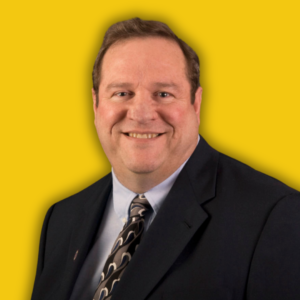 Keith Davis, MD
Keith Davis, MDPhysician
Family Health Services
Twin Falls, Idaho
No one works harder to advance rural health issues than Dr. Keith Davis, both in his professional career as a rural primary care physician and in a volunteer capacity through his service on numerous Boards impacting rural health. Dr. Davis has worked tirelessly throughout his career on behalf of his patients and all Idahoans.
I arrived in Shoshone in 1985 as a National Health Service Corps (NHSC) scholar. I practiced solo family medicine, including non-surgical OB, until 2022, when Family Health Services acquired my Rural Health Clinic (RHC). Following the acquisition, I transitioned to a QA/QI physician role at the Federally Qualified Health Center (FQHC). My initial projects included developing ADA-recognized diabetes education programs and integrating clinical pharmacists at multiple FQHC locations.
Over the course of my career, I served as the County Coroner for 20 years and worked on staff at three area hospitals. I was a founding board member of Interlink Volunteer Caregivers and actively contributed to the American Cancer Society, where I chaired the Idaho Division. I was also a Paul Harris Fellow in the local Rotary Club and an active member of the area Chamber of Commerce. I continue to serve as the Medical Director of the county-operated EMS service. Starting in 1989, I worked with second-year medical students from the University of Washington in their R/UOP program and precepted students from the Idaho State University Physician Assistant Program.
In 2014, I was named the American Academy of Family Physicians (AAFP) Family Physician of the Year – a great honor. In 2023, at the groundbreaking of the new FQHC building in my town, it was a surprise announcement that the new clinic would be named after me!
Several years ago, with state and Federal grant funds, I led my community in a new Community Health Emergency Medical Services (CHEMS) program. We linked ambulance care with the primary care providers for the patients served. We had excellent outcomes, including decreased ER visits and hospitalizations.
I grew up in the small town of Tangent, Oregon—population 300. Shoshone, Idaho, had 1300 people when I moved here in 1985- over four times larger than Tangent! The physician who had served Shoshone and Lincoln County was retiring, and I was looking for a rural site for my NHSC repayment.
Many years ago, the Idaho Office of Rural Health sent me to the annual meeting of the Colorado Office of Rural Health. I was impressed with what Colorado was doing and brought best practices to Idaho.
 Nakeitra Burse
Nakeitra BurseExecutive Director
Six Dimensions
Madison, Mississipi
Dr. Nakeitra Burse is committed to improving health outcomes in rural communities. She is the Founder of Six Dimensions, a small non-profit focused on improving maternal health outcomes. She is also the Executive Producer of the short documentary Laboring with Hope. Dr. Burse spearheads several programs focused on healthcare access, reducing health disparities, and promoting health equity. Her efforts have significantly impacted public health, particularly for underserved populations. She is a true community star.
Six Dimensions’ mission is to enhance Black maternal health outcomes through research, training, outreach, and advocacy. Though we are intimately involved in community outreach and activities directly impacting families, our bigger mission is to create change within systems and communities. Therefore, much of our work is connected to ensuring that those who touch, support, and serve Black/African American women do so in a patient-focused, culturally tailored, and respectful manner. Outreach and advocacy encompass much of our work, allowing us to stay connected with the community’s needs. Additionally, we advocate for policies proven to improve maternal health outcomes, namely Medicaid Expansion.
The most rewarding moments are receiving calls about how our information and resources helped families make decisions and navigate complex health and social services systems.
In 2019, we produced a short documentary, Laboring with Hope, not only as a response to the Black maternal health crisis but also as a result of desiring to amplify the voices and stories of Black women. This film has been shown not only across the state of Mississippi but also across the country. The local outcome has been the most valuable impact, in my opinion. Showing this film in small communities across Mississippi helped create an opportunity for dialogue about the real ways that women experience racism within healthcare settings and increased awareness of how systemic racism creates challenges with navigating systems of care.
Our organization closely partners with Magnolia Medical Foundation to provide direct services that support families during pregnancy, postpartum, and parenting. This partnership has expanded access to doulas, social services, case management, and mental health support. Magnolia Medical also provides essential items such as diapers, wipes, feminine products, water, food, and baby supplies to families in need. What began as a very small-scale project serving only ten women at a time has now blossomed into a full-service program supporting hundreds of families.
The “Power of Rural” means the power of community. Living in rural communities often means organizations and community members must be innovative and resourceful to address long-term and emerging issues.
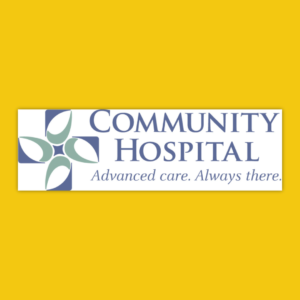 Community Hospital
Community Hospital Community Hospital, a Critical Access Hospital in Southwest Nebraska, truly exemplifies what it means to be a Community Star. The program engages the entire community and takes a comprehensive approach to addressing its diverse needs.
In recent years, our focus has been on population health. We’ve been actively involved in community efforts to increase exercise and develop local amenities. Additionally, we are engaged in local housing and building efforts. Like other rural areas, we face workforce challenges, so we are working diligently to introduce the workforce of the future to healthcare careers.
Our community is facing demographic changes, particularly a decline in working-age residents, which will significantly impact us. Despite this, our organization has been very successful in starting several service lines, and we continue to develop strategic goals and plans to address the workforce challenges ahead.
Radiation Oncology is a prime example of how our organization addressed a significant challenge within our rural community. In response to recurring concerns about long travel distances, highlighted in our Community Health Needs Assessments and patient feedback, we explored potential solutions. In 2014, we opened a Radiation Oncology service line in McCook. Over the past ten years, this service has consistently received positive patient feedback, with many expressing gratitude for having such essential care close to home.
One example of a successful collaboration our organization has been part of is the introduction of the Baldrige Communities of Excellence Framework, focusing on population health. The community has embraced this initiative, and after six years, we have achieved several significant milestones. A new pool has been constructed, and community baseball and softball fields are in progress, with a bond already passed, the YMCA has met a $16 million goal in less than a year. Additionally, a new housing development is underway, and a second disc golf course is being planned and we have an upcoming $43 million school bond coming to vote in November. The community is highly engaged, with members consistently attending meetings, driven by the momentum and excitement surrounding these positive changes.
Yes, the State Office of Rural Health has been incredibly helpful to our organization, providing consistent communication and assistance.
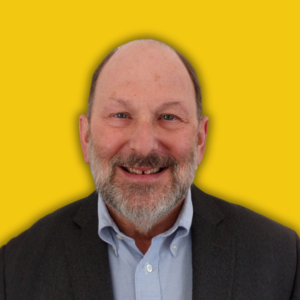 Mark Schoenbaum
Mark SchoenbaumRetired Director
Office of Rural Health and Primary Care, Minnesota Department of Health
Richfield, Minnesota
The Community Star award is just one of many recognitions illuminating the breadth of Mark Schoenbaum’s legacy in improving rural health in Minnesota and nationwide. For over 22 years as Director of the Minnesota Office of Rural Health and Primary Care, he advocated for policies that are now embedded in state government and continue to enjoy bipartisan support. One notable example is the state’s ever-expanding Loan Forgiveness Programs, which have proven to be top-tier return-on-investment efforts in recruiting and retaining primary care providers in rural Minnesota. Mark was also the leader in state government behind the development of the dental therapist profession, and he has since become a trusted national expert and advocate for the field. Mark excelled at fostering collaboration among stakeholders and shepherding competing agendas to consensus. His skills and wisdom were highly sought by the state legislature and his colleagues nationwide. For 13 years, he invested in the next generation of rural health leaders as an adjunct faculty member in Health Policy at the University of Minnesota Crookston. Even in retirement, Mark continues to share his expertise as a consultant on health workforce issues.
Like every State Office of Rural Health, the Minnesota Office of Rural Health and Primary Care contributes to rural communities as a source of funding, hands-on expertise, and a trusted connector and source of information.
There is an underutilized cohort of immigrant and refugee physicians across the country who are ready, willing, and able to go to work to help address the rural physician shortage. However, they are blocked from practicing by hidebound education and licensing practices, leaving many underemployed. Minnesota created a state program to help some immigrant and refugee physicians begin to practice.
The 50 State Offices of Rural Health collaborate nationally through the National Organization of State Offices of Rural Health (NOSORH). As a representative of my State Office of Rural Health, I’ve been fortunate to be part of NOSORH’s ongoing accomplishments to improve rural health by making laws and regulations more practical, educating national decision-makers and bringing more funding to rural communities.
Working in rural health was an opportunity to put my values to work, and I jumped at the chance.
The “Power of Rural” and National Rural Health Day provide great opportunities to celebrate the hard work taking place at the local, state, and national levels and to remind ourselves of the Margaret Mead quote: “Never doubt that a small group of thoughtful, committed individuals can change the world. In fact, it’s the only thing that ever has.”

Sunshine Community Health Center is leading the transformation of community support by implementing meaningful social determinants of health screening that results in real connections to resources for patients and families in need (food, transportation, tobacco cessation, clothing, childcare, housing, water) and is making noticeable improvements in health outcomes.
Sunshine Community Health Center (SCHC) makes a difference in rural health by defining and overcoming the barriers to health in its rural communities. SCHC has a dedicated team that goes above and beyond best practices to serve its rural communities efficiently. SCHC provides comprehensive services that address all social determinants of health and engages with the community through several modalities, such as outreach, palliative care assistance, and community partnerships.
SCHC prides itself on developing innovative pilot programs that aim to reduce the burden on the healthcare professionals who do the work and the burden on patients who have challenges accessing our clinic’s services. Building partnerships and developing collaborations with our local resources is ideal for providing whole-person care. Many non-profit organizations in the Northern Valley, such as the Upper Susitna Food Pantry, Sunshine Transit, Denali Education Center, and Upper Susitna Senior Center, build service opportunities that aim to bridge gaps in community members’ needs. SCHC utilizes this network to help complete unmet social needs affecting a person’s ability to be healthy.
SCHC has built a pilot program for an e-referral system in partnership with Connect Mat-Su, a Mat-Su Health Foundation organization specializing in resource allocation. The aim of this project and our collaboration is to meet the social needs of the patients while decreasing the staff burden in providing the highest quality of care with limited resources. Our program workflow is framed around prioritizing Social Determinants of Health and health-related social needs with every patient and focusing on high-risk, chronically ill community members.
The Power of Rural means leveraging power for the unique characteristics each rural area embodies. Rural areas have an advantage in that they can voice and share a story that hasn’t been heard—a story as unique as the dynamic and culture of the people who live in that rural area. That is the Power of Rural.
The Alaska State Office of Rural Health has been instrumental in helping us understand better ways to approach population health concerns. The Office has a small staff, yet when asked for technical assistance, the staff have always met the challenge with evidence-based, qualified direction to help navigate program endeavors to meet the needs of our Northern Valley communities with willingness and availability.
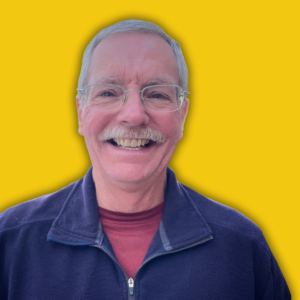 Robert Downs
Robert DownsPhysician Assistant, Assistant Medical Director
Lake City Area Medical Center
Lake City, Colorado
Robert Downs served as a Physician Assistant and the Assistant Medical Director for Lake City Rural Health Clinic in Hinsdale County. Under his leadership, the clinic has enhanced its services by engaging in various programs and activities. Robert has been deeply involved in advocacy, participating in the Rural Colorado Primary Care Leaders Program to understand healthcare policy better and help others in his community understand the importance of advocacy. He has advocated for state-level workforce policies for advanced practice providers and has testified multiple times for PA workforce bills. Although Robert recently retired, he remains committed to his community and continues to work part-time.
Lake City Area Medical Center is the only healthcare facility in our rural community, situated 55 miles from the nearest Critical Access Hospital. Hinsdale County is one of the most remote counties in the lower 48 states, with a year-round population of 850 that swells to 2,000-4000 during vacation season. The most rewarding aspect of my time at the medical center has been caring for the people who live here year-round and keep our county running, including our town and county employees, teachers and students, service workers, and other business leaders.
During the COVID-19 pandemic, we approached care for our community in a very fluid situation. With limited resources, we needed to devise a strategy to manage and care for our population effectively. Given the possibility of being unable to transport patients out of our community, this required close coordination with other county emergency service organizations.
I spent 17 years in EMS, mainly as a paramedic and flight paramedic. I decided I wanted to have a greater impact on patient health and went to PA school. I then worked in Emergency Medicine at a Level 1 trauma center, honing my skills with the intent to spend the last ten years of my career in a rural setting. I always wanted to work in a smaller community where I was ‘taking care of my neighbors.’ Now semi-retired, I devote my time to medical mission work, including two recent trips to Ukraine, and I continue to volunteer as a Paramedic with Hinsdale County EMS.
To me, the “Power of Rural” means keeping our county functioning economically as well as in good health. The small rural clinic should be the leader in setting high standards of physical and behavioral health.
The Colorado Rural Health Center has provided significant support through advocacy and technical assistance. They’ve also provided invaluable advice on staff recruitment.
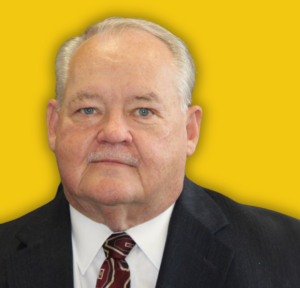 Brian Olson
Brian OlsonChief Executive Officer
La Red Health Center, Inc.
Georgetown, Delaware
For over 25 years, Brian Olson has led the development and expansion of La Red Health Center (LRHC), the sole Federally Qualified Health Center (FQHC) serving rural Sussex County, Delaware. LRHC began as a part-time phone linkage program. Under Brian’s leadership, the organization has grown to include three FQHC service sites offering a full spectrum of care, including OB/GYN, integrated behavioral health and medication-assisted treatment, onsite dental care, and a mobile health unit. Brian has been a humble, steady leader in safeguarding the success and sustainability of LRHC. He has maintained decades-long effective relationships with community-based organizations, the health services industry, and local and state government agencies through many seasons of change. As Brian prepares to retire at the end of the year, there is no better time to acknowledge his impact on Delaware’s rural health system than during National Rural Health Day!
Our organization offers primary, oral, and behavioral health services at all three of our facilities. In addition, we provide a wide array of enabling, enrollment, outreach, educational, and transportation services. We have created a ‘one-stop shopping model’ that benefits our patients and providers by having access to this integrated delivery model.
Public transportation in our county is limited. Consequently, early on in our development, we committed to purchasing transportation vans to ensure that our patients have access to services provided at our facilities and specialty services throughout our state and as far away as Philadelphia. By doing so, we have mitigated the unnecessary use of hospital emergency rooms and lessened the burden of hospital admissions.
I was successful in convincing our state government to relocate the Women, Infants, and Children (WIC) program into our main facility to better meet the needs of our patients and alleviate a separate transportation need for them.
To me, the ‘Power of Rural’ connotes the concept of ‘locally grown.’ To really understand a community’s unique culture and needs, you must live in and be rooted in that community.
Yes! I also serve as the Board Chair of the Delaware Rural Health Initiative (DRHI), a collaborative vehicle for addressing shared regional health concerns in a more coordinated manner. In both this role and my day-to-day role, I have worked closely with our State Office over the years.
 Donna Kahm, SPHR
Donna Kahm, SPHRPresident & CEO
Southern Tier Health Care System, Inc.
Olean, New York
Donna Kahm leads Southern Tier Health Care System (STHCS) in assessing community needs and developing programs that increase access to care and essential services, including emergency medical services, creating safe environments, substance abuse prevention, caregiver support, health insurance navigation, and economic development. She fosters partnerships to reduce duplication and increase efficiencies, maximizing resources. Deeply committed to her community, Donna is a compassionate, tireless leader whose efforts have made a remarkable impact. She truly exemplifies community service and is a true Community Star.
Since 2007, I’ve served as President and CEO of STHCS, overseeing a rural health network that serves Allegany, Cattaraugus, and Chautauqua counties in southwestern New York. My work focuses on improving access to health care and enhancing quality through strategic partnerships and innovative programs. I’m deeply committed to making a meaningful impact on the well-being of our residents.
One of the most rewarding moments was implementing the Cribs for Kids program. Since 2016, we’ve distributed 724 cribs and trained 847 parents and caregivers in safe sleep practices. To date, no infants in our program have succumbed to an unsafe sleep death. Moments like these illustrate the tangible difference we can make, especially in resource-limited rural areas.
In 2013, we launched the transformative Regional Paramedic Program using distance learning technology to provide advanced training for rural EMS providers. Funded by the USDA and the Appalachian Regional Commission, the program established a network with over nine satellite sites equipped with high-fidelity training materials, helping hundreds of EMS providers enhance their skills without long-distance travel.
One of our most successful collaborations is our work with community agencies to combat the opioid crisis, including the EMS “Leave Behind” Narcan program. Partnering with EMS teams, we provide Narcan kits and training to at-risk individuals. Our strong relationships with jails ensure that released individuals receive Narcan kits and information on accessing treatment services. These efforts have saved lives and strengthened our community’s response to the opioid crisis.
The “Power of Rural” represents the resilience, strength, and ingenuity inherent in rural communities. It acknowledges the profound impact that focused, community-driven efforts can have on improving health outcomes. The “Power of Rural” is the driving force behind our work and serves as the foundation for our ongoing commitment to enhancing healthcare access and quality in these communities.
We have a close relationship with the New York State Office of Rural Health. This collaboration has significantly strengthened our ability to address rural challenges and has been a key factor in our organization’s success.